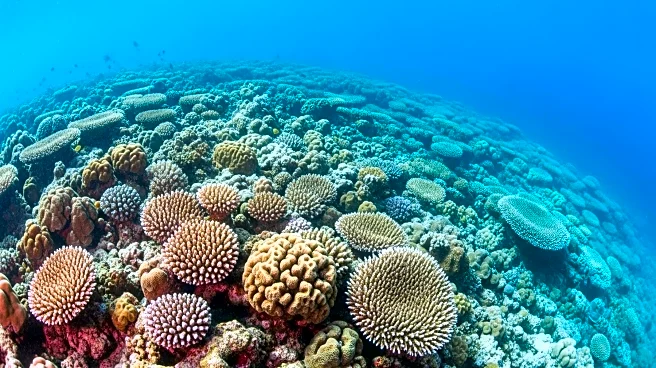What's Happening?
Scientists have announced that the world has reached its first irreversible climate change tipping point, marked by mass coral reef die-offs due to warming ocean temperatures. This development underscores the severe impact of climate change on marine ecosystems, with coral reefs being particularly vulnerable to temperature changes. The loss of coral reefs affects biodiversity and the livelihoods of communities dependent on these ecosystems.
Why It's Important?
The die-off of coral reefs is a critical indicator of the broader impacts of climate change, highlighting the urgent need for global action to mitigate environmental damage. Coral reefs play a vital role in marine biodiversity and provide economic benefits through tourism and fisheries. Their decline could lead to significant ecological and economic consequences, affecting millions of people worldwide.
What's Next?
Efforts to address climate change and protect marine ecosystems will need to be intensified. This includes reducing carbon emissions, implementing sustainable fishing practices, and investing in coral reef restoration projects. International cooperation and policy changes are essential to prevent further environmental degradation and protect vulnerable ecosystems.











